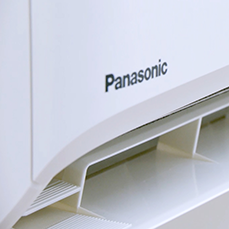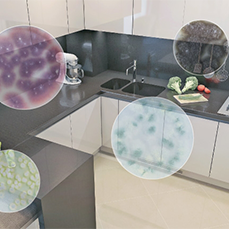How to remove unpleasant odours from your home and live fresh
Your home is your sanctuary – comfortable, safe, warm, and clean. So when unpleasant odours creep into your home, it can feel like an invasion of your private space, and you want to do everything you can to get rid of it.
In this post, we look at some of the common causes of bad smells around the home and how you can go about preventing and removing them once and for all.
Table of Contents
● Why does my house smell?
● What could be causing bad smells in the house?
● Enjoy fresh air at home, always
● nanoe™ X is effective against odours
Why does my house smell?
Nobody wants to be at home when the house smells like rotten eggs, or there’s a smoke smell in the house. If there’s a smoker in your home, you might have an issue when the house smells like cigarette smoke. It’s an assault on the senses and, if it’s strong enough, it’s likely to be all you can think about.
So why does it smell? Well, there are a few common things that could be the culprit. One of the first steps is to determine what’s causing the odour. If you can find the source, you can deal with it, preventing the smell from getting any worse.
Often, smells can hang around long after the source has been removed, in which case you’ll have to find a way to eliminate the smell so it doesn’t bother you. But first things first, you should find the source.
What could be causing bad smells in the house?
1. Garbage bin
If you’re asking yourself “Why does my house smell?” you should probably check your garbage. A lot of factors can affect how much your garbage smells, and it’s such a common cause of bad odours that it’s always the first place you should check.
Maybe you threw away some perishable food, like meat or dairy products. Maybe it’s been hotter than normal so your garbage is decomposing faster than it usually would. Or maybe it’s just been a while since you took it out. In any case, if you have a bad smell in your home, it’s a good idea to check your bin first and probably even take it out for good measure.
Some tips for cleaning your bin effectively and preventing it from smelling too bad in the first place include the following:
● Avoid putting particularly smelly and perishable items in it altogether. For example, put meat and fish in a separate bag and take it outside right away instead of leaving it in your indoor bin.
● Add baking soda to the bin to absorb bad odours and prevent them from escaping into your home.
● If your bin smells, cleaning it more regularly than you have been is likely to have a big impact. For example, try fully rinsing it out with soap and water (and drying it thoroughly) every time you change the bag.
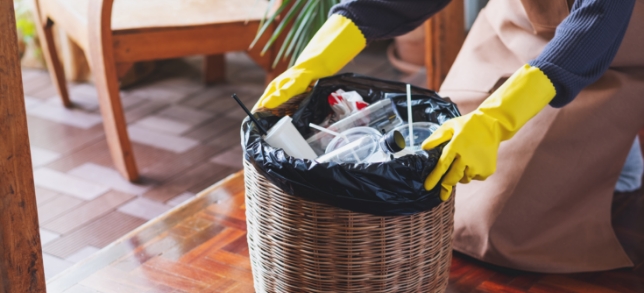
2. Kitchen and dishwasher
Kitchens are where we store, handle, and prepare food, so it’s no surprise that they can be the source of bad odours. It could be something as simple as recent cooking causing an onion smell in the house, or it could be related to rotting food. At first glance, your kitchen might look clean, but food particles can often get trapped in hard-to-reach places like under the oven or fridge. If these are left, they can cause a stink.
If you’re being overwhelmed by bad smells, try checking your kitchen for smells. If the bad odour seems to be originating from there, then do some detective work to find any pieces of food that might be hidden. If that fails, try checking inside the fridge for expired food.
If you do find smelly foods, it’s best to dispose of them properly:
● Don’t put them in the indoor bin. Instead, take them outside right away to eliminate the cause of the odour from your home.
● Carefully scrub the area where they were with soap and water, such as the part of the fridge they were in, the floor, or the counter.
● Ventilate the area to remove any air that may be carrying the bad odours.
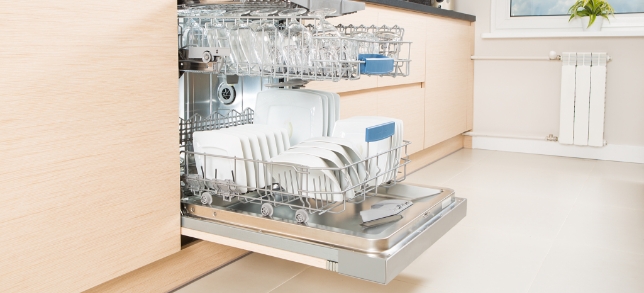
3. Flooring and carpets
Our floors take a lot of punishment. It’s likely that you’ve spilled all kinds of food products, chemicals, and other smelly things on them over the years, so the source of your bad odour may well be your floor (or whatever’s been spilled on it).
If you have non-absorbent floors, like wood, tiles, or laminate, then the spill that’s causing the smell is probably fresh and easy to find with a little sniffing around. It should also be fairly easy to clean up with some water and a mop.
If, however, you have a rug or carpet, it can be a bit tricker to deal with. If you suspect a bad odour is coming from your carpet, you may need to do some scrubbing to get it out. If that fails, then a carpetcleaning machine should do the job.
4. Bedrooms and beds
It’s not very nice to think about, but our bodies, clothes, and bed sheets are often the source of bad smells around the home. For example, sweat and sebum from your skin can quickly build up on your pillowcase and bed sheets, causing bad smells to fill the room. If this is the case, it can even interfere with sleep, so it’s important to deal with the issue promptly.
If you’ve detected an unpleasant odour in your house, try checking all the bedrooms and beds. Even if your bed doesn’t smell, it could be that your dirty or damp clothes are the source, so it’s also worth checking your laundry basket if it's in your bedroom.
5. Toilets
It may sound incredibly obvious, but the bad smell permeating your home could well be coming from your toilet. Usually, any odours coming from the toilet area should disperse quite quickly so it’s not anything to worry about. However, if the smell persists, you may have a plumbing issue. If you suspect a plumbing issue, check for any leaks. If you find any, or if the problem doesn’t go away, then it’s probably time to call in a plumber.
6. Bathrooms
Besides the toilet, bathrooms are full of potential sources of bad odours. Showers, sinks, pipes, plugholes, and vents can all become blocked or dirty, resulting in bad smells that can spread throughout the room and even into the rest of your home. Additionally, wet towels that haven’t dried properly can cause musty smells surprisingly quickly.
So, when checking for a bad odour, carefully check the bathroom or bathrooms in your home to see if they’re the source.
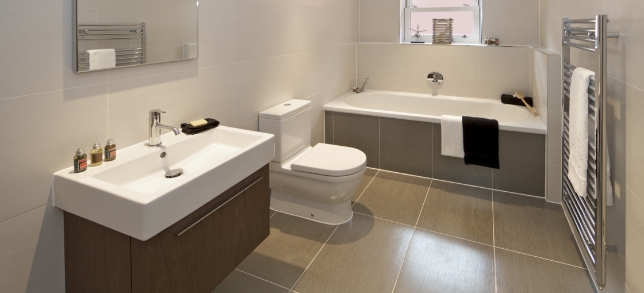
7. Pets
Pets are a beloved addition to many homes, and they can provide us with endless entertainment. But it’s no secret that pets can also be the source of bad smells. Dirty hamster cages, dog beds, cat litter trays – the list is endless. Whatever the animals you have in your home, there’s a good chance they’re causing the unpleasant smell. Fortunately, if a pet is the cause, cleaning them or whatever they’ve got dirty is usually enough to quickly get rid of the odour.

Enjoy fresh air at home, always
While bad smells can usually be dealt with relatively easily, it’s best if we don’t have to encounter them in the first place. To avoid bad odours in your home, try following some basic tips.
Frequent cleaning is important
Staying on top of cleaning is always important, and it is the number-one way to avoid bad odours in your home. But however good your intentions are, there are times when things can still get dirty and cause smells. A great way to prevent this is to do a deep clean every few weeks. This can help you to reach the places that may be missed in a normal clean, such as inside the oven, under the fridge, under the bed, and so on.
Additionally, you can try to add a few more things to your normal cleaning routine to include easily forgotten areas/items like shelves, vases, and bookcases, for example. Adding more regular sweeping, vacuuming, and mopping to your routine can also help a great deal.
If necessary, you can make use of chemical cleaners. However, it’s best to avoid using harsh chemicals, unless absolutely necessary, to avoid the risk of worsening the problem and creating a bleach or ammonia smell in the house.

Ensure regular ventilation
Airing out your home is a crucial part of preventing bad smells. In fact, even if you clean everything as well as you possibly can, it’s still likely that unpleasant odours will naturally build up, simply as a result of your home being lived in.
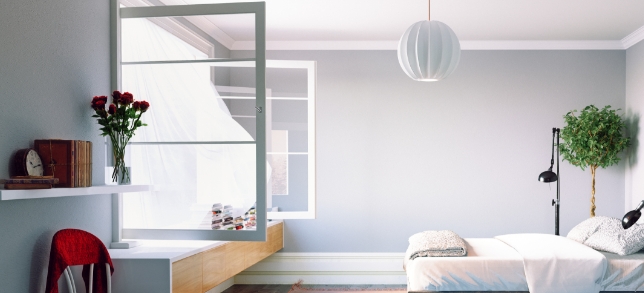
Use air fresheners and fragrance
Air fresheners and room fragrances can be an excellent way to cover mild odours. There are several kinds, and the type that’s best for your situation can vary. For example, some people like plug-in fresheners, diffusers, or oils for a long-lasting effect. For more short-term smells, a simple spray freshener can do the trick.
nanoe™ X is effective against odours
Panasonic nanoe™ X technology generates nano-sized water particles containing hydroxyl radicals into the air. These highly reactive particles immediately bind with odour causing substances and deodorise bad smells, while also inhibiting the growth of bacteria and viruses that can cause unpleasant odours.
At Panasonic, we’ve been working on hydroxyl radical technology for more than 20 years, and the result is nanoe™ X. In addition to reducing bad odours, nanoe™ X is proven to inhibit allergens, pollens, moulds, pesticide residues, and PM2.5 pollutants.


